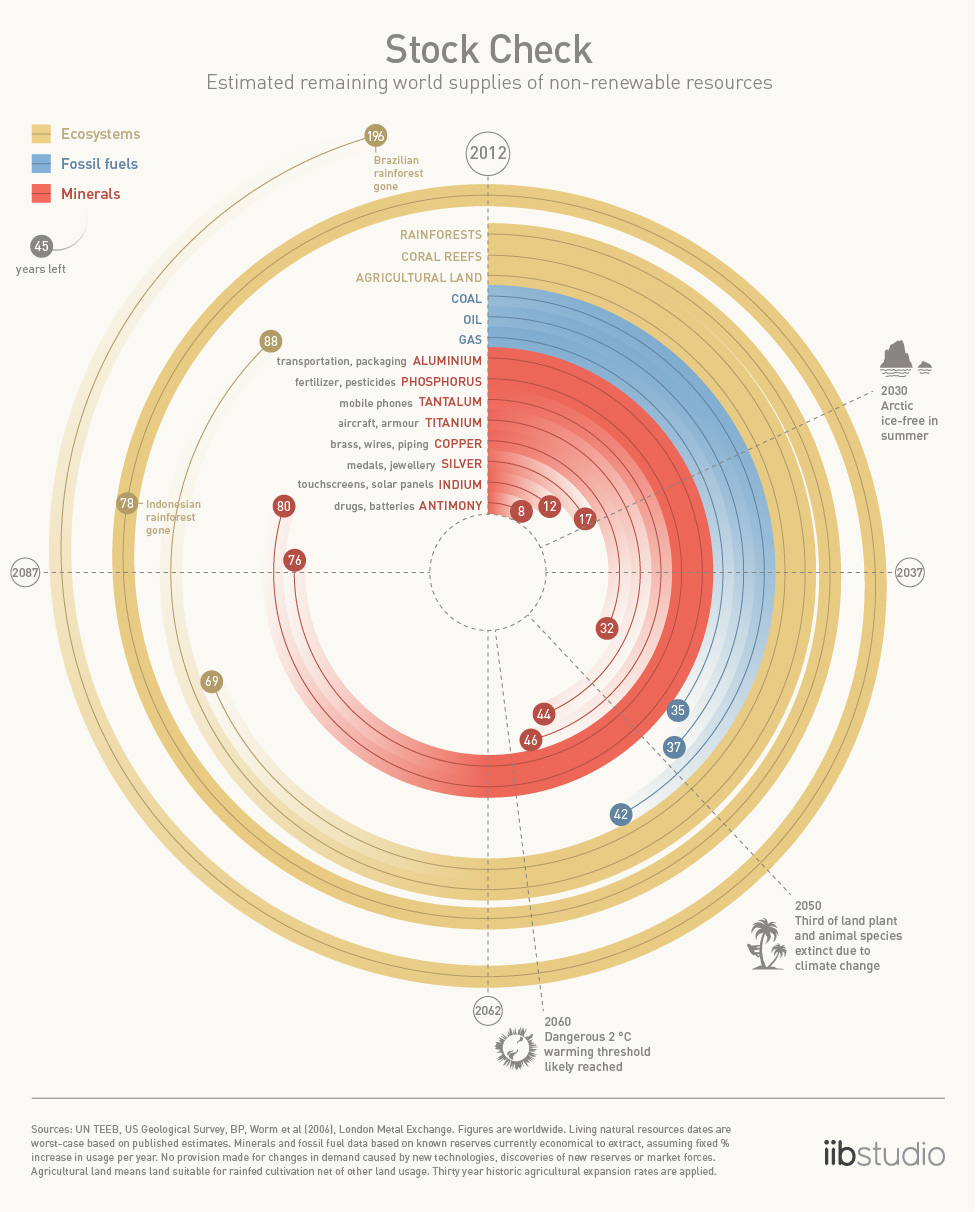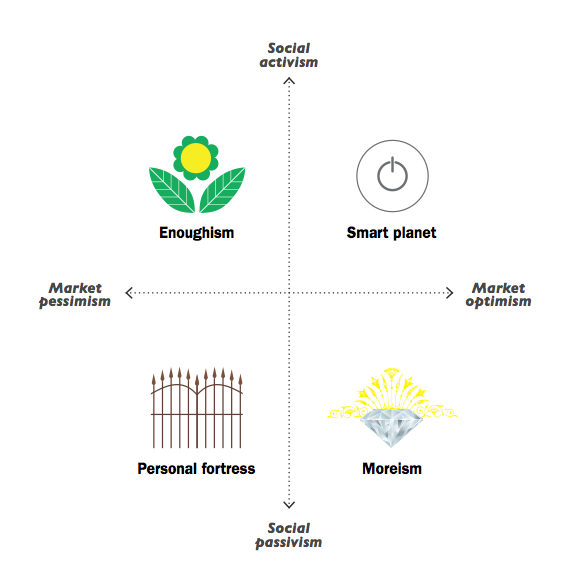Read this. It’s interesting.
Category Archives: Resources
Peak Stuff of another kind
The Biggest Question of the 21st Century
I was speaking with someone yesterday and I was reminded about an article by Michael Wolf in the FT. It’s essentially about how the “great convergence” (between West and East) is going to shape this century and is informed by a book, which I blogged about a while ago, called Why The West Rules – For Now. To the question of whether or not resources will prove to be a limiting force Mr Wolf comments:
“The biggest question of the 21st Century may be whether resources prove to be binding constraints once again, as they so often proved to be prior to 1800.” Quite.
“If the answer is yes”, all of humanity might come to enjoy the historically unprecedented lifestyles of today’s most favoured people. If the answer is “no”, we might, instead fall prey to what Prof Ian Morris (the book’s author) calls the “Five horsemen of the apocalypse” – climate change, famine, state failure, migration and disease”.
In other words, we possibly face a choice between two of the scenarios I developed with Oliver Freeman and Wayde Bull in 2009. A choice between “Smart Planet”, where science and technology solve our most pressing problems, and “Personal Fortress”, where countries (and households) retreat to what are perceived as safe havens.
The former is the world of Google, Apple, IBM and Siemens. A globalized world where genetics, robotics, the internet, artificial intelligence and nanotechnology create growth and provide the smarts to solve resource shortages, climate change, skills shortages (caused by declining fertility rates) and disease.
The latter is a ‘Mad Max’ world of dwindling energy reserves and food supplies, where insecure governments use any means available to secure resources. This is a world where economic growth is seriously constrained, where mass-migration (caused by climate change and war) creates xenophobia, where food prices and taxes cause riots and where globalisation starts to unravel. A world of resource nationalism, protectionist economic policies, generational conflict and gated communities.


